

26 November 2024 | 12 min


26 November 2024 | 12 min

As an eco-tourist, your choice of accommodation plays a significant role. In Sri Lanka there are many 5 star luxury accommodations, tree houses, lodges that prioritise environmental conservation. Luxury hotels and resorts like those that Jetwing Vil Uyana located in Sigiriya mostly focus on rainwater harvesting, reforestation, organic farming and using renewable energy sources such as solar energy
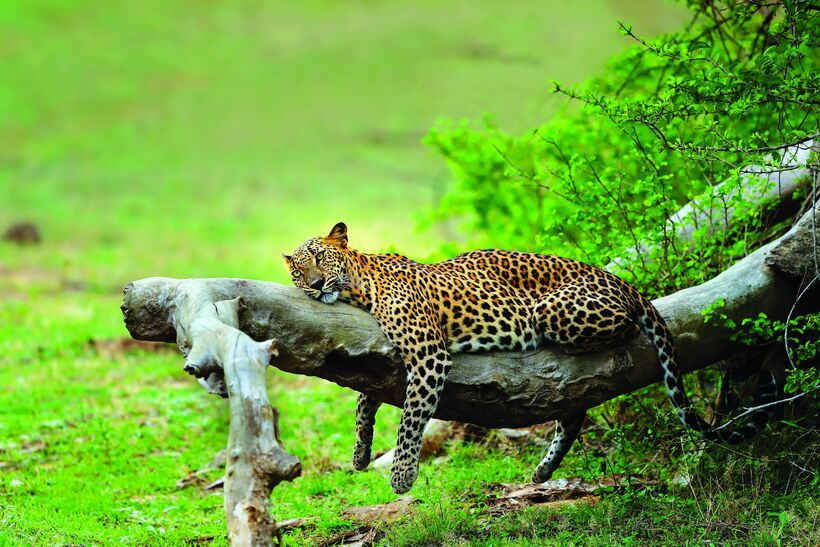
9% of lands in the island of Sri Lanka features 26 national parks that are home to various wild species like elephants, leopards, crocodiles, sloth bears and rare species of migratory as well as exotic birds. Several famous national parks such as Yala, Wilpattu and Udawalawe offer eco conscious safari tours on strict rules and regulations to avoid any disturbance to the wildlife, as responsible wildlife tourism is one of the primary keys to animal conservation. We recommend you to prioritise observation over interaction avoiding harmful activities such as elephant rides.
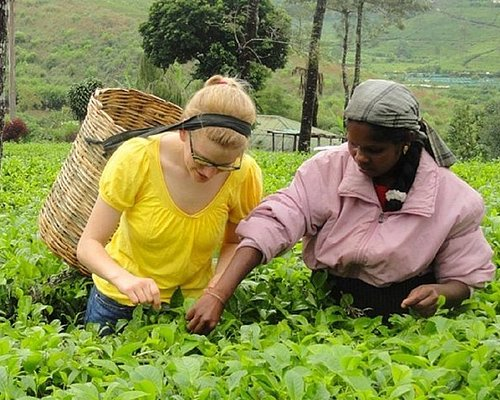
Sri Lanka is world renowned for its Ceylon tea. There are many tea estates located in Kandy and Nuwara Eliya top tea regions in Sri Lanka that prioritise organic farming for tea production. In these estates, you can enjoy unique experiences like plucking tealeaves with locals, eco tea estate tours and to gain insights and knowledge into sustainable eco-friendly organic agricultural methods.
Sri Lanka boasts of over 64 hiking trails that features waterfalls, wildlife, misty forests, hilltops etc. There are many nature trails like Sinharaja, Horton Plains and Adam’s peak in Sri Lanka that offer unique experiences to its visitors. Considering nature trails instead of motorised safaris is another way of minimising your carbon footprint as an eco-tourist.
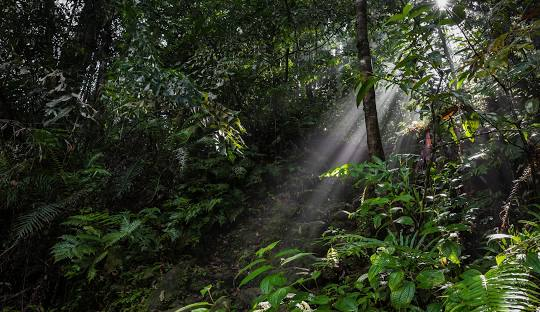
Sinharaja rain forest is an ideal eco tourism spot and it is a UNESCO World Heritage Site that limits the number of visitors to safeguard the environment. They also have very experienced expert guides that educate you throughout the journey on various aspects like wildlife, rare medical plants and the importance of environmental conservation.
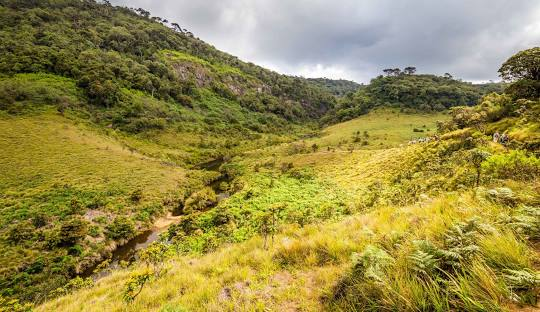
Horton Plains is a beautiful hiking trail and a UNESCO World Heritage Site that offers scenic views of the world's end with strict regulations on waste management under the concept of ‘leave only footprints, take only memories’
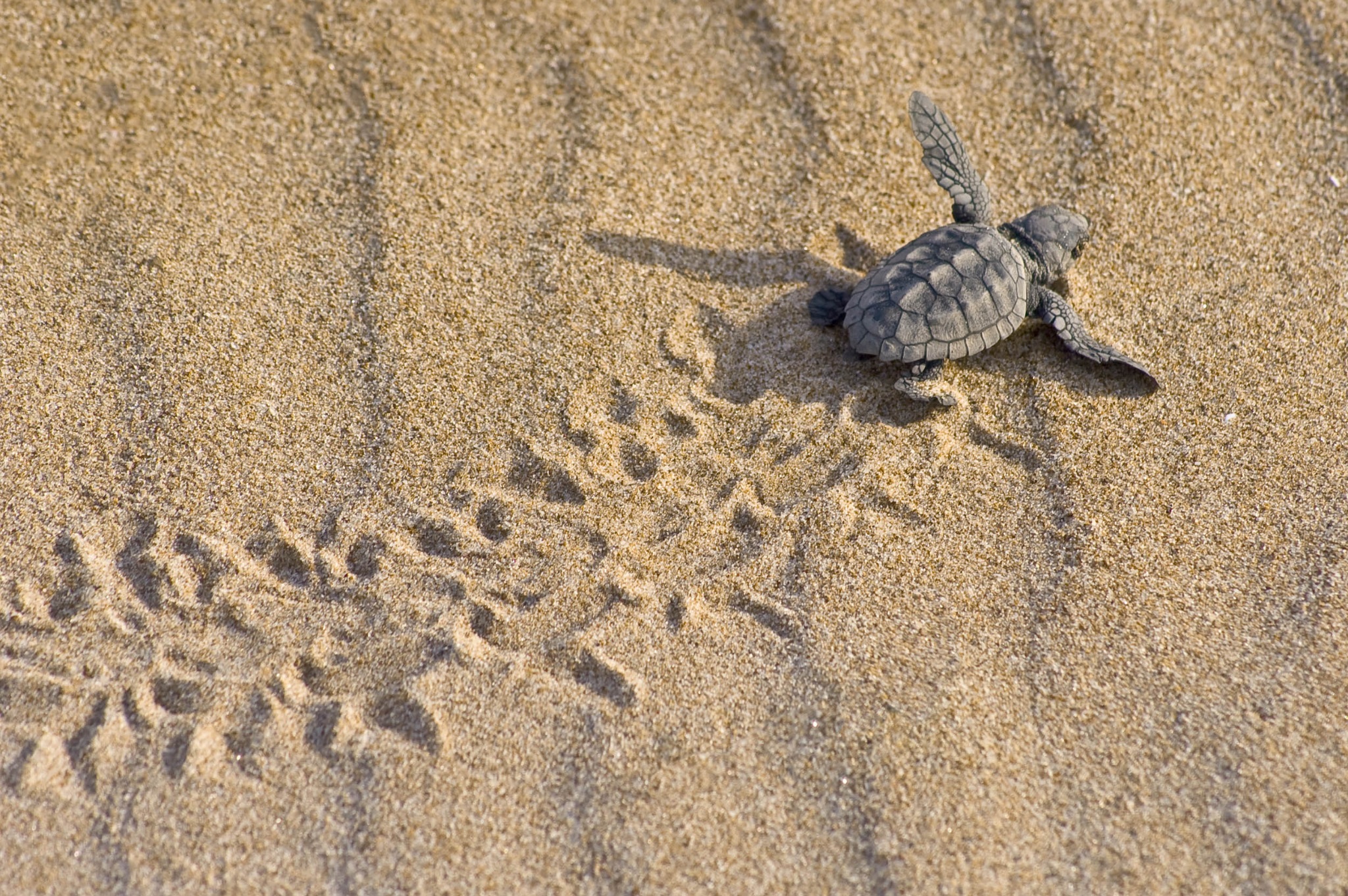
Sri Lanka is surrounded by the Indian Ocean and features a beautiful coastal line that offers many eco-friendly water sports such as snorkelling and diving that is mostly to be seen in beaches like Unawatuna, Hikkaduwa and Trincomalee. Turtles are an endangered species and Sri Lanka conducts various projects in turtle conservation in coastal areas. Therefore, you can engage in turtle conservation at night and observe turtle nesting processes in tangalle beach areas while ensuring minimal disruption to these endangered species.

Ayurvedic wellness is the primary role of ecotourism in Sri Lanka. Many resorts and hotels like Sen Wellness Sanctuary located in Tangalle,Sri Lanka offer relaxing ayurvedic spa and wellness treatments.This traditional holistic experience is mostly done using organic oils, herbs and other ingredients that promote well being, reduce health problems and increase relaxation.

Travelling around Sri Lanka using eco-friendly transportation is another way to support environmental conservation. Travelling by train is a very mindful method as it not only offers scenic views but low impact on nature. The Kandy to Ella train ride is very popular among locals as well as tourists for its breathtaking views of tea mountains and green landscapes. Many eco resorts and certain places also offer bicycles for rent to explore nearby towns and villages on an hourly rate that encourages green imperishability.

Sri Lanka is currently focused on making it a zero waste country where many eco friendly businesses, restaurants, resorts, hotels, cafes and grocery stores are embracing zero waste principles and are now prioritising ditching single use plastics and replacing them with biodegradable and reusable alternatives like paper bags, paper cups, paper plates, wooden spoons etc. By choosing to use biodegradable items as above you can easily minimise environmental pollution and promote wellbeing of both humans and nature.
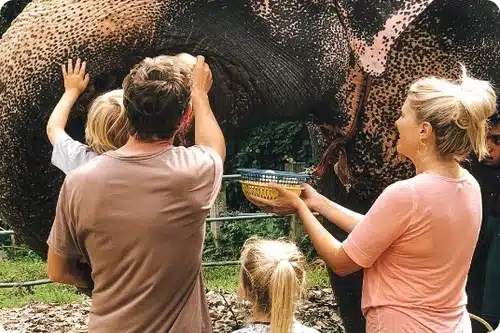
During your stay in Sri Lanka, you can also participate and invest your time and skills in supporting local environmental conservation efforts and community projects like rainforest restoration projects in Sinharaja, english teaching programs in rural schools, turtle conservation efforts by the beach side and elephant conservation efforts in Pinnawala. Engaging in these activities with your family and kids spreads positive energy,socialising with friendly locals and encouraging kids at a young age to protect the environment and love nature.